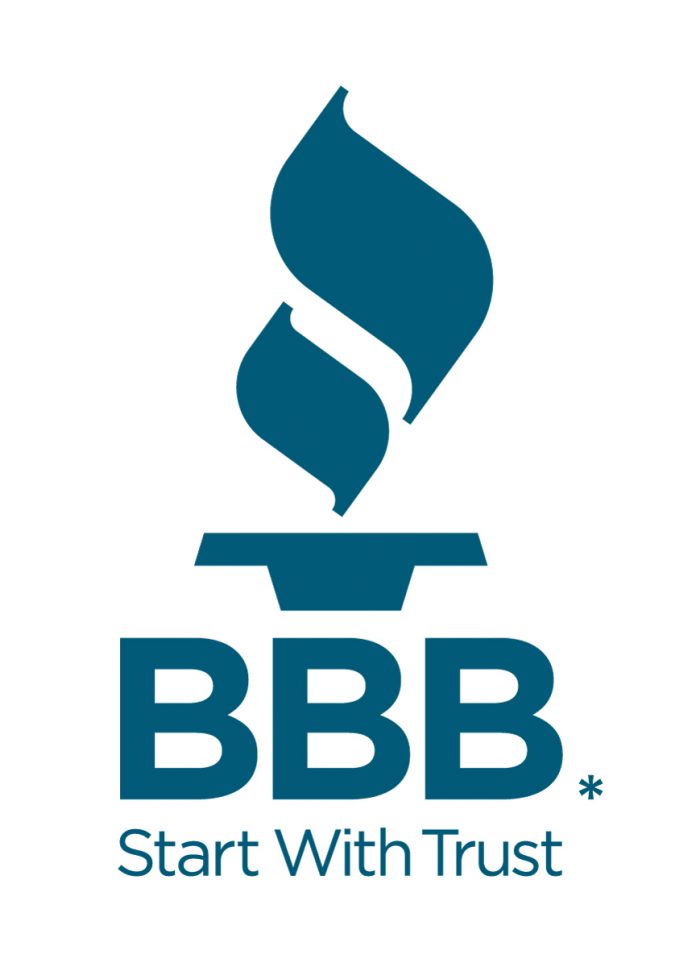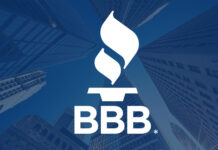BETTER Business Bureau serving Mainland BC (BBB) has prepared a Naughty List with the top 12 scams of Christmas that are most likely to catch consumers and donors off guard during this season.
While 2020 is quickly winding down, the scams targeting the public continue to increase. Now more than ever, British Columbians need to watch out for any fraudulent schemes aimed at swiping their cash and stealing personal information.
“Many of the scams on this list are facilitated through emails and social media platforms, however the latter is where most people are vulnerable,” says Karla Laird, Manager for Community and Public Relations at BBB. “Exercise caution when you come across social media ads about discounted items, event promotions, job opportunities and donation requests, as well as direct messages from strangers. If you are asked to make a payment or donation by wire or e-transfer, through third parties, by prepaid debit or gift cards, treat this as a red flag.”
Be mindful of these scams that could cut into your holiday cheer and our tips to avoid them:
E-Cards: These are becoming a popular alternative to physical Christmas cards, especially because of the COVID-19 pandemic. However, scammers are also using them as a way to retrieve your private information.
Tips:
- If the sender’s name is unclear or the email is asking you to share personal information or pay money to open it, it may be a scam.
- If your email has an attachment that ends in ‘exe’, it could contain a virus or some form of malware.
2. Social Media Gift Exchanges: Each holiday season this scheme pops back up, and this year is no different. A newer version of this scam revolves around exchanging bottles of wine; another suggests purchasing $10 gifts online. You might see references to receiving “happy mail” or doing the exchange “for the good of the sisterhood.” Some 2020 versions include this text: “If there’s EVER been a year we need random fun presents to come in the mail IT’S 2020!!!!!!” or “And Grinches who say this is a scam… It’s 2020.” Another twist asks you to submit your e-transfer email into a list where participants get to pick a name and send money to strangers to “pay it forward”. BBB even received a report about “Secret Santa Dog” where you buy a $10 gift for your “secret dog.”
In all of these versions, participants unwittingly share their personal information, along with those of their family members and friends, and are further tricked into buying and shipping gifts or money to unknown individuals, in hopes that the favour is reciprocated by receiving the promised number of gifts in return. Unfortunately, it does not happen. Just like any other pyramid scheme, it relies on the recruitment of individuals to keep the scam afloat. Once people stop participating in the gift exchange, the gift supply stops as well, and leaves hundreds of disappointed people without their promised gifts or cash.
Tips:
- Pyramid schemes are illegal, so ignore the requests if they come. Stay away from any offers and invitations that sound like a quick way to money or benefits; have no paper trail; require cash only; and in some cases, prevent you from sharing details of the transaction with anyone.
- If you see a post about joining a social media gift exchange or any kind of pyramid scheme, report it to the platform so they can remove it.
3. Holiday Apps: Apple’s App Store and Google Play list dozens of holiday-themed apps where children can video chat live with Santa, light the menorah, watch Santa feed live reindeer, track his sleigh on Christmas Eve, or relay their Christmas wish lists. This holiday season, when COVID-19 is causing kids to skip the traditional in-person visit with Santa, apps may play a more important role than ever.
Tips:
- Review privacy policies to see what information will be collected. Responsible apps with content directed to children usually include a description of the information to be collected before a parent or child downloads it to their device. If you cannot find a privacy policy, treat that as a red flag.
- Be wary of free apps, as they can sometimes contain more advertising than apps that require a nominal fee. Free apps can also contain malware.
4. Alerts About Compromised Accounts: BBB has been receiving reports on Scam Tracker about a con claiming your Amazon, Paypal, Netflix or bank account has been compromised. Victims receive an email, call, or text message which explains that there has been suspicious activity on one of their accounts, and it further urges them to take immediate action to prevent the account from being compromised.
The email version of this con uses the company’s logo, colours, and language to make the message look just like an official alert. A link in the message leads to a mimic website that asks for your account number, login and password information, and even your Social Insurance number in some instances.
In the phone version, the caller claims to have noticed an expensive charge on your account disguised as a holiday purchase. Some victims shared that the caller pushed them to download phony “security software” to their phone or computer. This turned out to be malware which gave scammers access to sensitive information stored on their devices. In other versions, the caller tricked victims into buying pre-paid gift or debit cards in order to reverse the fraudulent charges and secure their account. One victim told BBB Scam Tracker that they received a call from the ”Amazon verification department” claiming that a hold was put on their account due to fraudulent charges. In order to lift the hold, the caller convinced the victim “to buy $200 of Google Play cards. This was needed to use the codes to cancel the orders. [The scammer] said I needed to do it right away; the account could only be on hold for a short time.”
Tips:
- Be extra cautious about unsolicited calls, emails, and texts.
- Understand how businesses handle communications with their clients and customers about disputes and suspicious activity. For example, PayPal clearly states that they will never send you an email asking you for sensitive information like your password or ask you to download attachments or software.
- Verify the claims before taking action. Log into your account or contact the company’s customer service team to confirm if there really is a case of suspicious activity associated with your account before you decide what to do.
5. Free Gift Cards: Nothing brings good cheer like the word ‘FREE’. Scammers have been known to take advantage of this weakness by sending bulk phishing emails requesting that you share personal information to receive free gift cards. In some of these emails, scammers impersonate legitimate companies like Starbucks and promise gift cards to loyal customers that have been supporting their business throughout the pandemic. They may also use pop-up ads or send text messages with links saying you were randomly selected as the winner for a prize.
Tips:
- If you have received an unsolicited email with gift card offers, do not open it. Instead, mark it as Spam or Junk. However, if you opened the email, do not click on any links.
- Do not share any personal information to receive a gift card.
- To prevent pop-up ads from appearing, turn on the ad blocker on your device.
6. Temporary Holiday Jobs: Retailers typically hire seasonal workers to help meet the demands of holiday shoppers. Shippers and delivery services are top holiday employers this year because of the increase in online orders and the need to get most of these packages delivered before Christmas. These jobs are a great way to make extra money, sometimes with the possibility of turning into a long-term employment opportunity. However, jobseekers need to be wary of employment scams aimed at stealing money and personal information from job applicants. Keep an eye out for opportunities that seem too good to be true.
Tips:
- Look out for vague company descriptions. If you cannot identify the company’s contact information, owner, headquarters or product from its online ad, it could be a scam. Check bbb.org to see if the company exists and to confirm its rating.
- Be wary of big money for small jobs. If an employer is promising outrageously good wages for what seems like simple tasks such as reshipping packages, stuffing envelopes, or answering phones, this is a red flag. These too-good-to-be-true offers are an attempt to steal your personal information from a fake job application.
- If you have been hired for a work-from-home job, be careful if your new boss sends you a cheque for more than you need and requests you to send some back or to use part of it to pay someone else. That is a classic overpayment scam. The cheque will most likely bounce, and you will be stuck with repaying the bank.
7. Look-Alike Websites: The holiday season brings endless emails offering deals, sales and bargains. Be wary of the emails you receive and the links enclosed. Some may lead to look-alike websites that are created by scammers to trick people into downloading malware, making dead-end purchases and sharing private information. Tips:
- Review the sender’s email address. Legitimate businesses will often send emails with a proprietary address, like @bbb.org.
- If you are uncertain about the email, do not click any of the links. Instead, hover over them to see where they reroute.
- Look for misspellings and bad grammar in the emails you receive and on the websites you visit.
- Only enter private information if the website begins with ‘https’, as the ‘s’ means it is secured and will be encrypted.
8. Fake Charities: Typically, 40% of all charitable donations are received during the last few weeks of the year. However, due to the COVID-19 pandemic, many organizations had to cancel their usual fundraising events and awareness campaigns and are now inviting donors to support online. Donors need to be on the lookout for fraudulent charities and scammers pretending to be individuals in need.
Tips:
- Avoid impromptu donation decisions to unfamiliar organizations. Responsible organizations will welcome your gift tomorrow as much as they do today. Verify your charity at BBB’s give.org or on the Canada Revenue Agency website.
- Where possible, donate to the charity through their website and use a credit card. If you are considering a donation on a crowdfunding site, review the site’s terms and procedures to find out if posts are reviewed for scams.
9. Fake Shipping Notifications: With more consumers making purchases online, there is also an increase in the number of notifications about shipping details from retailers and carriers. Scammers are using this new surge to send phishing emails with links enclosed that may allow unwanted access to your private information or download malware onto your device. They may also try to trick you into paying new shipping fees.
Tips:
- Most online vendors provide tracking information that indicates the delivery company as well as verifies the status and location of your items.
- You should not be required to pay an additional fee to receive your items as typically, delivery charges are paid when making the purchase.
10. Pop Up Holiday Virtual Events: This year, many local in-person events such as pop-up holiday markets or craft fairs, have moved online. Scammers are creating fake event pages, social media posts, and emails, charging admission for what used to be a free event. The goal is to steal your credit card information.
Tips:
- Confirm if there is an admission fee for the virtual event on the event’s website. In the cases where there is a charge, use a credit card. If the event is free, watch for scammers trying to claim otherwise. If this happens, message the event coordinator to help prevent other virtual attendees from being scammed.
- If the event is unfamiliar to you, research the host and the list of vendors ahead of time. If you want to confirm the legitimacy of a vendor, do an independent online search for that vendor’s store rather than follow the link provided.
11. Top Holiday Wishlist Items: Low or ridiculously priced luxury goods, jewellery, designer clothing and electronics are almost always cheap counterfeits and knockoffs. This year, the PlayStation 5 console, Star Wars the Child Animatronic Edition (a.k.a Baby Yoda) and Apple’s new iPad are some of the items in high demand. Be very cautious if you are considering to purchase these high-value items from individuals through sites like Craigslist. Read the posts carefully before purchasing. BBB was recently informed about a post on E-Bay that was advertising the image of a PS5 for US $499, with someone already making the mistake to purchase it. Also watch out for scams trying to trick consumers into making e-transfer payments before receiving items.
Tips:
- The best way to avoid getting scammed when purchasing in-demand items is to buy them directly from a seller you know and trust.
- Check brand websites for the list of their verified sellers.
12. Puppy Scams: Many families, especially those with children, may be considering to add a furry friend to their household this year. However, you could fall victim to the year-long pet purchase ploy. Typically, the scammers pose as breeders or pet owners with too many puppies to care for. They will share photos or videos of the pet and request that you wire money to them for the purchase and shipping. Once they have received your money, they may start sending updates about delays with shipment or you may never hear from them again. In most cases, the buyers are left with nothing, as there was no puppy to begin with, and there is no chance of getting their money back.
Tips:
- Request to see the pet in person before making a purchase.
- Do an image search online of the pet photo you received. If multiple websites pop up, it is probably a scam.
- Know what prices to expect for the type of pet you are interested in.












